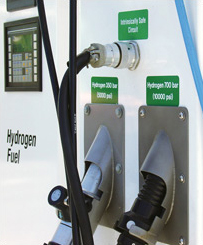Filling station
(Redirected from Gas stations)
Filling Station
A filling station, also known as a gas station or petrol station, is a facility that sells fuel and engine lubricants for motor vehicles. The most common fuels sold are gasoline (petrol) and diesel fuel. Filling stations may also sell other types of fuel, such as natural gas, hydrogen, ethanol, or biodiesel.
History
The first filling stations were simple facilities that provided fuel for early automobiles. These stations were often part of a general store or a blacksmith shop. As the number of automobiles increased, dedicated filling stations began to appear. The first purpose-built gas station was constructed in St. Louis, Missouri, in 1905.
Types of Filling Stations
Filling stations can be classified into several types based on the services they offer and the type of fuel they provide.
Full-Service Stations
Full-service stations offer a range of services beyond just fuel. Attendants may pump fuel, check oil levels, clean windshields, and perform minor maintenance tasks.
Self-Service Stations
Self-service stations allow customers to pump their own fuel. These stations are more common today and often have automated payment systems.
Alternative Fuel Stations
These stations provide fuels other than gasoline or diesel, such as compressed natural gas (CNG), liquefied petroleum gas (LPG), or electric vehicle charging.
Design and Layout
Filling stations are designed to efficiently serve a large number of vehicles. They typically include multiple fuel pumps, a convenience store, and sometimes a car wash.
Fuel Pumps
Fuel pumps are the primary feature of a filling station. They are equipped with hoses and nozzles to dispense fuel into vehicles. Modern pumps often have digital displays and card payment options.
Convenience Stores
Many filling stations have attached convenience stores that sell snacks, beverages, and automotive products. These stores can be a significant source of revenue for the station.
Environmental and Safety Considerations
Filling stations must adhere to strict environmental and safety regulations to prevent fuel spills and contamination. Underground storage tanks are used to store fuel, and these tanks are monitored for leaks.
Global Variations
Filling stations vary widely around the world in terms of design, services offered, and fuel types available. In some countries, stations may offer unique services such as tire repair or vehicle inspections.
Future of Filling Stations
With the rise of electric vehicles, the role of filling stations is evolving. Many stations are beginning to offer electric vehicle charging stations alongside traditional fuel pumps.
Related Pages
Transform your life with W8MD's budget GLP-1 injections from $125.
W8MD offers a medical weight loss program to lose weight in Philadelphia. Our physician-supervised medical weight loss provides:
- Most insurances accepted or discounted self-pay rates. We will obtain insurance prior authorizations if needed.
- Generic GLP1 weight loss injections from $125 for the starting dose.
- Also offer prescription weight loss medications including Phentermine, Qsymia, Diethylpropion, Contrave etc.
NYC weight loss doctor appointments
Start your NYC weight loss journey today at our NYC medical weight loss and Philadelphia medical weight loss clinics.
- Call 718-946-5500 to lose weight in NYC or for medical weight loss in Philadelphia 215-676-2334.
- Tags:NYC medical weight loss, Philadelphia lose weight Zepbound NYC, Budget GLP1 weight loss injections, Wegovy Philadelphia, Wegovy NYC, Philadelphia medical weight loss, Brookly weight loss and Wegovy NYC
|
WikiMD's Wellness Encyclopedia |
| Let Food Be Thy Medicine Medicine Thy Food - Hippocrates |
Medical Disclaimer: WikiMD is not a substitute for professional medical advice. The information on WikiMD is provided as an information resource only, may be incorrect, outdated or misleading, and is not to be used or relied on for any diagnostic or treatment purposes. Please consult your health care provider before making any healthcare decisions or for guidance about a specific medical condition. WikiMD expressly disclaims responsibility, and shall have no liability, for any damages, loss, injury, or liability whatsoever suffered as a result of your reliance on the information contained in this site. By visiting this site you agree to the foregoing terms and conditions, which may from time to time be changed or supplemented by WikiMD. If you do not agree to the foregoing terms and conditions, you should not enter or use this site. See full disclaimer.
Credits:Most images are courtesy of Wikimedia commons, and templates, categories Wikipedia, licensed under CC BY SA or similar.
Contributors: Prab R. Tumpati, MD








